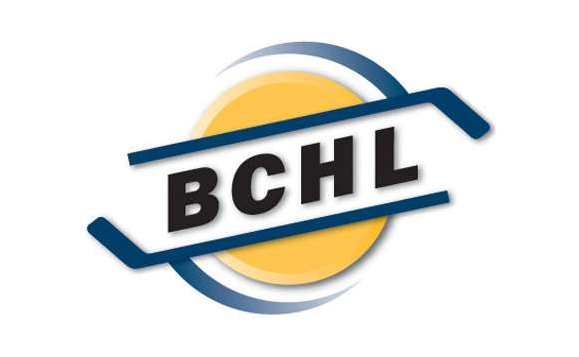The BCHL’s Board of Governors approved new protocols and initiatives for the upcoming 2020/21 season following their Annual General Meeting last month, including changes to on-ice procedures and player safety.
The BCHL said they will have further details on additional measures in Part 2 of their announcement on Thursday, June 4th.
Wednesday’s announcement revolves around the Department of Player Safety (DOPS), fighting majors, charging rule 6.3, slew footing, and portable defibrillators.
Several of the protocols stem from changes to player-safety at the Junior A level, which will come into effect next season.
Department of Player Safety
Brad Lazarowich, Director of Officiating and Player Safety will lead the DOPS with Steven Cocker, BCHL Executive Director, Competition and Events. The BCHL said the two will review all accumulative penalties that fall within the Junior A Supplement to ensure correct assessments were made at the ice level.
“In addition, the DOPS will be responsible for visiting each team during their training camps in order to review and set expectations of compliance to the Junior A Supplement in its entirety with the players and coaching staff,” said the BCHL.
Individual meetings will be held by the DOPS with players who reach specific penalty accumulation thresholds during the season.
Fighting Majors
Next season, the BCHL will imposer harsher penalties for fighting. Supplemental discipline will be given to a player who participates in their second fight.
“The previous standard gave players four fights prior to receiving any further supplemental discipline,” said the BCHL. “The new standard will increase exponentially after the second offence, including one-on-one calls from the Department of Player Safety.
The league is also taking a zero-tolerance stance on aggressor or instigator penalties, with suspensions on a first offence and significant punishment on subsequent penalities of the same nature.
“As a leader of developing college-bound student athletes, we feel this is a progressive step for the BCHL,” said Cocker. “The safety of our players is an integral part of any decision we make as a league and a stronger stance on fighting and zero-tolerance on instigators and aggressors is a great step forward. The game continues to evolve and move in the direction of speed and skill and we want to be on the forefront of that movement.”
Cocker said the Board of Governors will follow the fighting closely and evaluate progress on strengthening player-safety measures at their semi-annual meeting in 2021.
Charging Rule 6.3
Specific wording has been added to address any hits from outside of a player’s line of sight. Those do not include hits involving head contact, as head contact penalties already have strict enforcement.
“Any hit that occurs from a player’s blindside, meaning outside a 90-degree angle of their line of vision, with significant force, will be called charging,” said the BCHL. “Addressing this type of hit with a minor, major and game misconduct or match penalty will allow the DOPS an opportunity to review the hit for further possible discipline.”
Slew-Footing
Stricter penalties and supplemental discipline will now be imposed by the league for slew-footing penalties.
“Slew-footing will now be categorized with clipping and kneeing as an accumulation category. Any player who commits a slew foot will be assessed a four-minute double-minor penalty or a match penalty, depending on the severity of the incident as determined by the referee,” said the BCHL.
The league said if an injury occurs because of a slew foot, an automatic match penalty will be given.
Portable Defibrillators
The BCHL is now mandating that every team carry a portable defibrillator in case of an emergency.
“Trainers will be required to carry one for every game, practice and team event,” said the league.
Defibrillators will be located in all BCHL facilities as well for the 2020/21 season in case of an emergency involving team staff or a player.
2020/21 Season
Last month, a Return-to-Play Task Force was appointed by the BCHL to look at various scenarios to resume play while working alongside provincial health authorities.
“Creating the Task Force allows us to be as prepared as possible for a safe return to play, whenever we get the green light,” said Cocker.
The BCHL wants to ensure they are ready to go once they have approval from the B.C. Government and Hockey Canada to proceed.
“This involves planning for several different scenarios, including start dates and attendance capacities, as directed by the Health Authorities,” said Cocker.
The BCHL fully intends to start the 2020/21 season on schedule in the fall.




